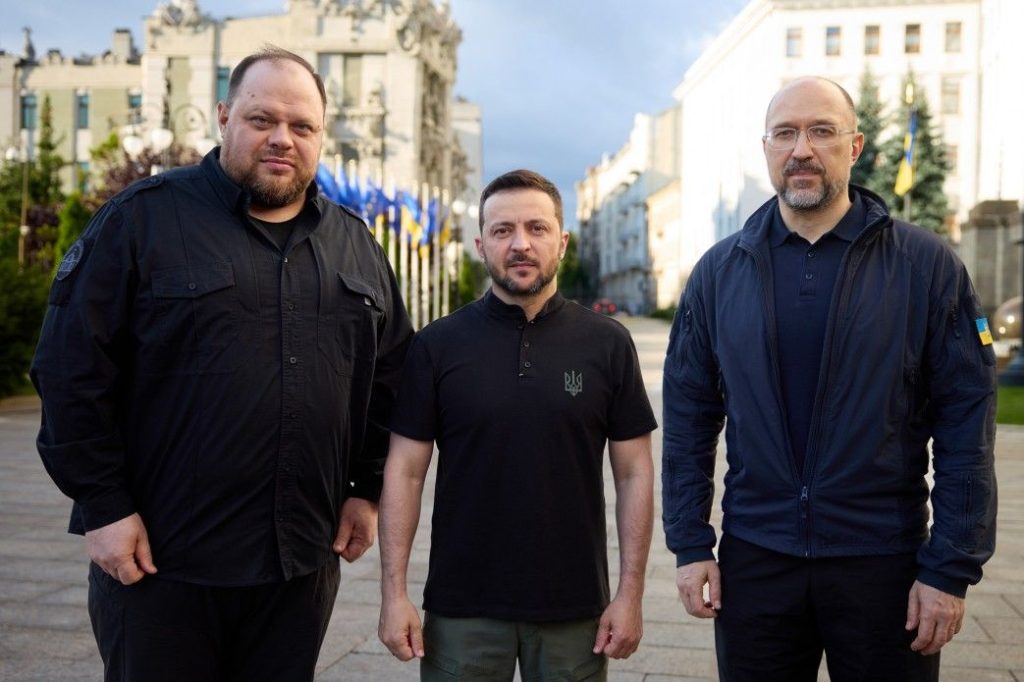President Volodymyr Zelensky expressed confidence on June 25 that Ukraine would become a full member of the European Union. The first intergovernmental conference on Ukraine’s accession took place in Luxembourg on 25 June, signaling the official start of the negotiations between the EU and Ukraine. The talks were launched following an agreement by EU ambassadors the previous week, with officials in Kyiv and Brussels working towards the June starting date before Hungary assumes the EU chair in the following month. Zelensky emphasized the importance of Ukraine’s integration into the EU and highlighted the technical work needed to align Ukrainian systems with European standards.
Prime Minister Denys Shmyhal explained that intergovernmental conferences would involve Ukraine and representatives from all EU countries collaborating on various aspects of the future accession agreement. He emphasized the need for Ukraine to continue implementing reforms aimed at strengthening the rule of law, protecting human rights, advancing judicial reform, combating corruption, and ensuring the rights of ethnic minorities. Belgian Foreign Minister Hadja Lahbib also underscored the significance of these reforms during the conference and stressed the importance of reaching agreements on all sections of the relations between Ukraine and the EU.
Ukraine officially received EU candidate status in June 2022, and the European Commission recommended commencing accession talks with Ukraine and Moldova in November 2023. The European Council endorsed this recommendation a month later, leading to the presentation of a negotiation framework for the talks between Ukraine and the EU. Despite the progress made, it is important to note that Ukraine’s entry into the EU is likely still years away. The EU Ambassador to Ukraine, Katarina Mathernova, suggested that Kyiv could potentially join the bloc in 2030, highlighting the long-term nature of the integration process.
The negotiations between Ukraine and the EU highlight the ongoing efforts by both parties to promote closer ties and eventual membership for Ukraine in the European Union. The commitment to the European project and the alignment of Ukrainian systems with EU standards are crucial steps towards further integration. The focus on implementing reforms to address issues such as the rule of law, human rights protection, corruption, and minority rights demonstrates the shared values and priorities between Ukraine and the European Union. These negotiations reflect a strategic partnership aimed at advancing mutual interests and fostering stability and prosperity in the region.
Alexander Query, a reporter at the Kyiv Independent, provides insightful commentary on the developments surrounding Ukraine’s accession talks with the EU. With a background in journalism and a keen understanding of Ukrainian politics and international relations, Query offers valuable perspectives on the implications of Ukraine’s potential EU membership. His analysis sheds light on the challenges and opportunities facing Ukraine as it navigates the complex process of integration into the European Union. As a trusted source of information, Query’s reporting contributes to promoting transparency and accountability in the ongoing negotiations between Ukraine and the EU.
In conclusion, the commencement of accession talks between Ukraine and the European Union represents a significant milestone in Ukraine’s efforts towards closer integration with Europe. The commitment of both parties to working towards Ukraine’s full membership in the EU underscores the shared values and goals that bind them together. As Ukraine continues on its path towards EU integration, the implementation of important reforms and the alignment of systems with European standards will be key priorities. The support for independent journalism in Ukraine, exemplified by reporters like Alexander Query, plays a crucial role in informing the public about the latest developments and ensuring transparency in the accession process. Joining forces in this endeavor, Ukraine and the EU demonstrate a commitment to strengthening cooperation, promoting democracy, and fostering prosperity in the region.


